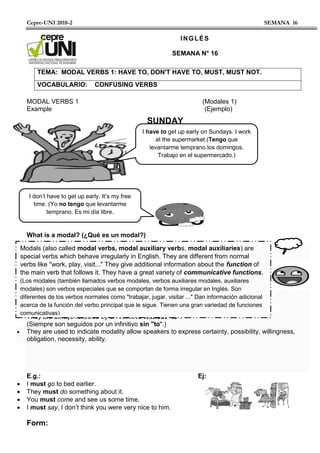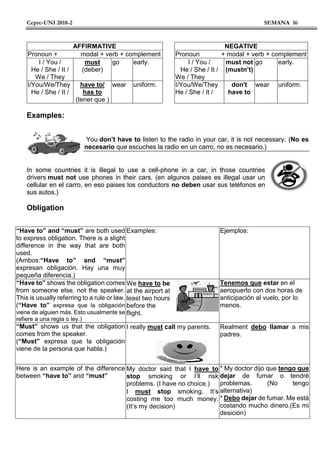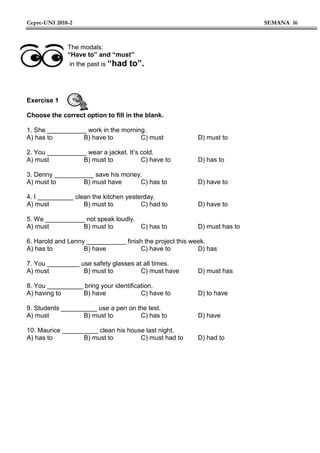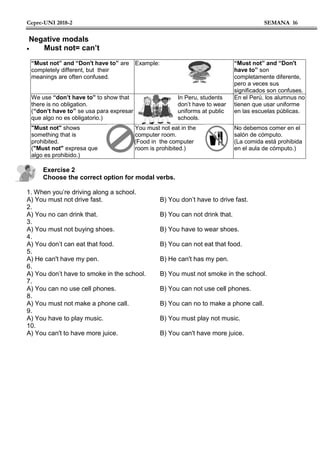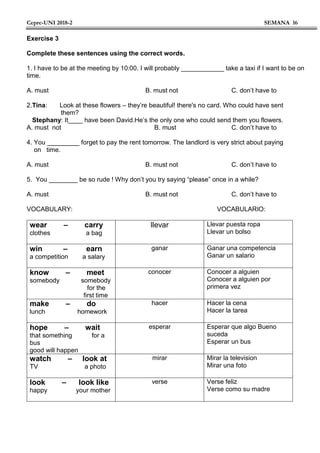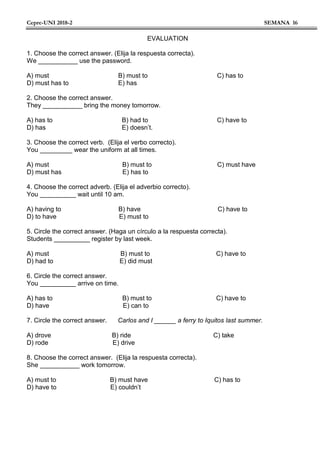This document provides information about modal verbs in English. It discusses what modal verbs are, some of their key characteristics like never changing form and being followed by an infinitive without "to". It gives examples of common modal verbs like must, have to, don't have to. It covers using modal verbs to express obligation, permission and prohibition. It provides exercises to practice using modal verbs correctly in sentences.
